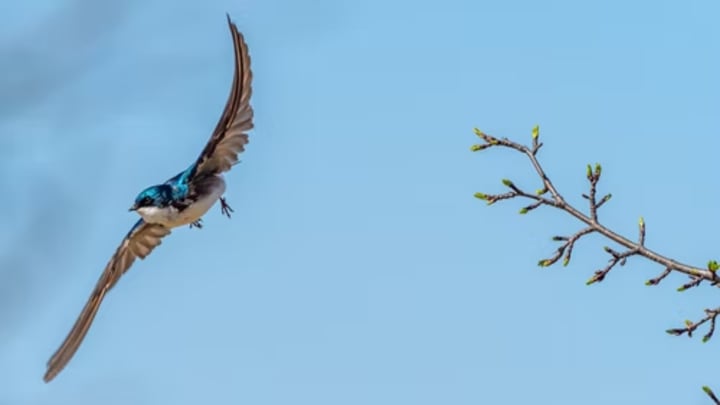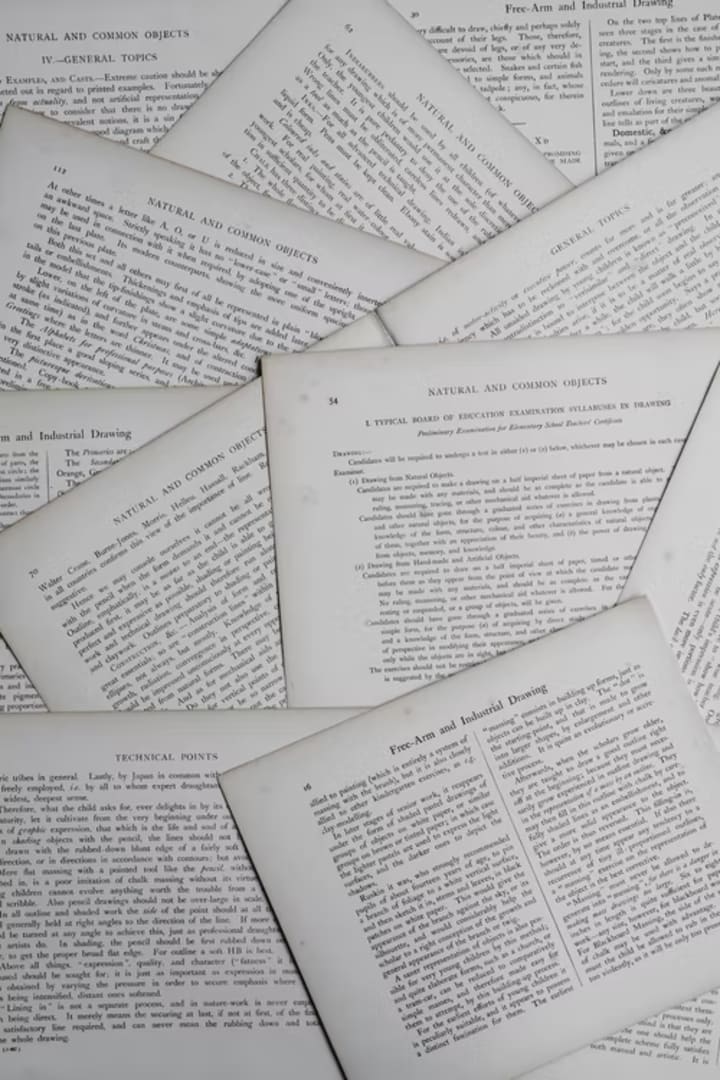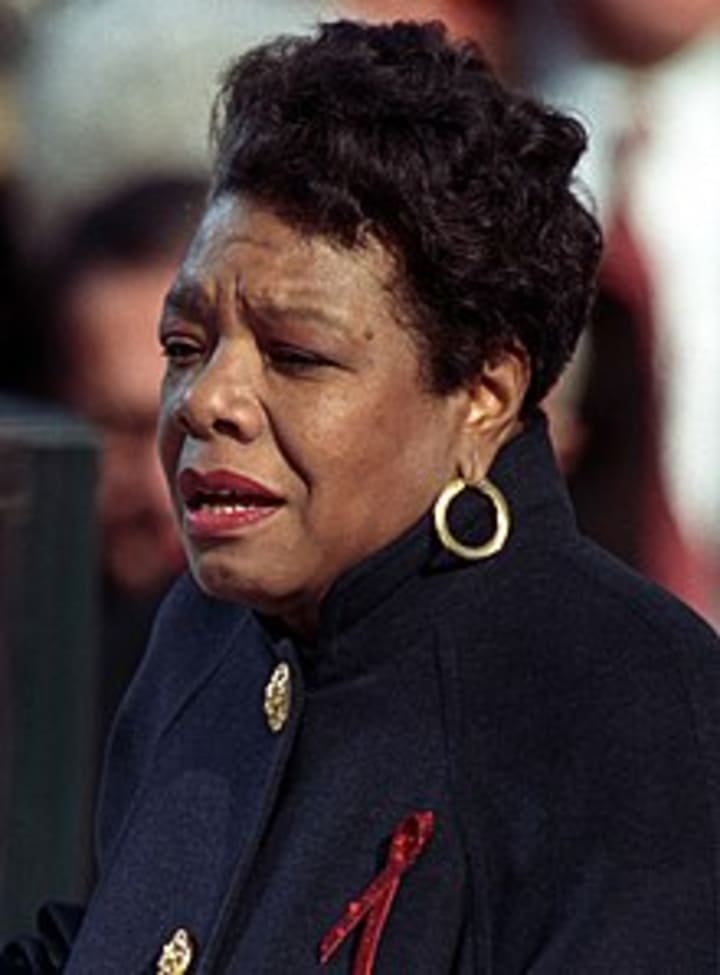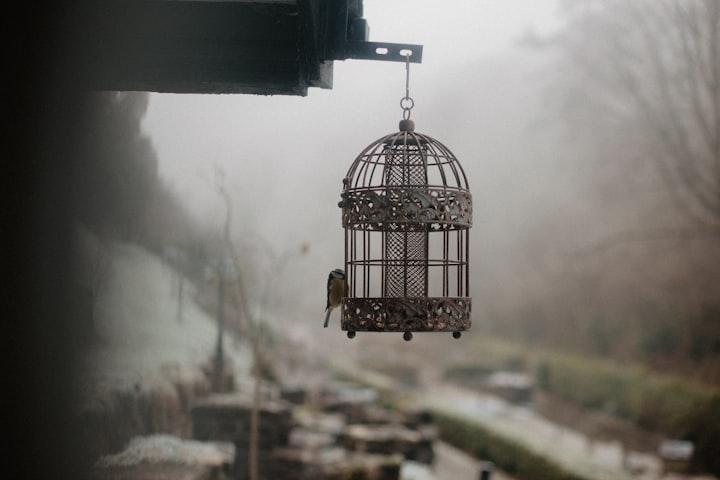I remember the day I came across the poem, "On the Pulse of the Morning" written by Maya Angelou. I discovered it when I had been doing some research on patriotism for a speech that I was writing for a Toastmasters'Competition. I had come across an article talking about her and this poem. After reading the entire article I searched for the poem. Her poem became the framework for my speech. Shortly after returning to college to finish my degree, I enrolled in an English composition course and was exposed to another of her poems: "Still I Rise". This time, it was introduced by the professor during the lecture, as we watched Maya Angelou perform this piece. I was captivated.
After reading her memoir, I Know Why The Caged Bird Sings, my admiration for her grew and I was excited for the opportunity to do continued research on her and her work. I was most interested in getting my hands on more of her poetry. At one point in my research efforts, I came across a reference to the title of the memoir, discovering that the title was inspired by a line from Paul Laurence Dunbar's poem, "Sympathy". So, I typed the following in my Google search bar: Sympathy by Paul Laurence Dunbar, and was happy to discover that he appeared on my favorite poetry website: Poetry Foundation. I immediately printed the page off to better read the three stanzas that appeared on my computer screen.

This poem is important to Maya Angelou's memoir because it represents much of the feelings felt and shared by other African American writers, including those found in Maya Angelou's memoir. The third stanza of this poem begins and ends with the title of her memoir:
I know why the caged bird sings, ah me,
When his wing is bruised and his bosom sore, --
When he beats his bars and he would be free;
It is not a carol of joy or glee,
But a prayer that he sends from his heart’s deep core,
But a plea, that upward to Heaven he flings --
I know why the caged bird sings!
The central symbol of this poem is the bird. Dunbar describes the experience of the caged bird, however, the caged bird is not real. Rather, it is a metaphor that expresses the speaker's lack of freedom and the weight of oppression. This poem was published in 1899 and it addresses slavery, segregation, and discrimination practiced against the African-American community. The poem is directed towards the white audience, as it was the white American society that practiced slavery and instituted segregation. Dunbar could write effectively about freedom and oppression because he was the son of freed slaves and had witnessed the oppression for himself.

The themes of freedom and oppression repeat themselves in Maya Angelou's memoir, with segregation and racism very much a part of her life. Learning more about Paul Laurence Dunbar and his poem "Sympathy" helped me to better understand why Maya Angelou's memoir was named after the lines found in this poem. I have found, after reading the works of Dunbar, Angelou, and other African American writers that my compassion and empathy towards them have only grown. The issues of racism and discrimination are still prevalent today: which puzzles me. Yet, it only increases my feelings towards African Americans: often extending a hand of friendship. Because the lines from Dunbar's poem are so profound, I found myself directly quoting from it as I spoke with my friends and peers. There are three, specifically, that have left a mark on my soul:
I know why the caged bird beats his wing \ Till its blood is red on the cruel bars; (9-10)
And a pain still throbs in the old, old scars (12)
It is not a carol of joy or glee, \ But a prayer that he sends from his heart's deep core, (18-19)
The back cover of the memoir has a statement made by James Baldwin in which he shares:
I Know Why The Caged Bird Sings liberates the reader into life simply because Maya Angelou confronts her own life with such a moving wonder, such a luminous dignity.
The message of Paul Laurence Dunbar's poem is only magnified by the beautiful, warm, and poetic prose of Maya Angelou's memoir. Baldwin described the memoir as moving, and I agree. I find both the poem by Dunbar and Angelou's memoir moving. I was deeply touched and I felt her emotions born of tragedy and joy. I understood the strength found and the courage to speak liberating.

The process of research has always been an enjoyable journey for me. I love to learn. I love to get to know other people and their cultures and beliefs. I find that this knowledge is invaluable and helps to provide a better understanding and perspective of the world in which we live. Even with all the joy and wonder of learning and gaining knowledge and experience in this practice, I am often saddened by the failings of humankind. Even in researching about this great woman, I had bouts of depression because I don't understand hatred and cruelty. This hasn't been the first time I have had this experience. However, along with the depression, I had experienced anger towards colonizers and slave owners when confronted with the realities of the slave era and couldn't understand how anyone could think that treating another human being so cruelly was okay. Especially, since the settlers of the United States initially left Europe for religious freedom, wanting to practice their Christian beliefs as they saw fit.
As I have reflected on both my research and writing processes I have discovered that writing has always been an enjoyable practice. It allows me to put my thoughts, feelings, and ideas down on paper: providing a level of satisfaction that can't be found in any other way. Maybe because a writer isn't interrupted by the reader... (IDK). I also find the writing process to be cathartic: allowing me to sift through the myriad of emotions, thoughts, and ideas that have surfaced during the process of research and contemplation.
What I have learned the most in researching Maya Angelou and her work is that
“We are more alike, my friends, than we are unalike.” - Maya Angelou

About the Creator
Rebecca A Hyde Gonzales
I started writing when I was about eight years old. I love to read and I also love to create. As a writer and an artist, I want to share the things that I have learned and experienced. Genres: Fiction, non-fiction, poetry, and history.







Comments
There are no comments for this story
Be the first to respond and start the conversation.